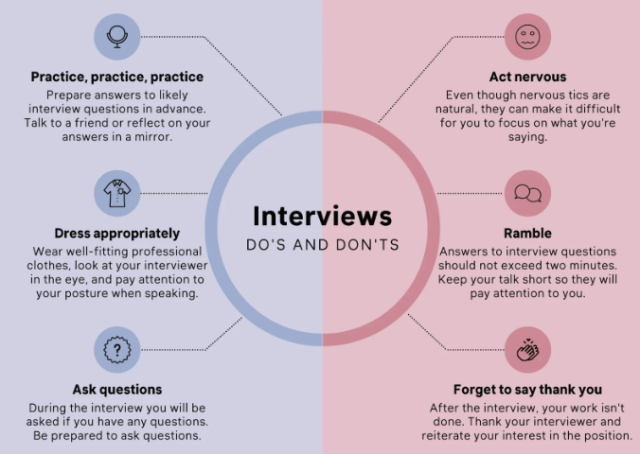The AI Career Dilemma in India
By: Javid Amin | 25 September 2025
Artificial Intelligence (AI) is no longer a futuristic buzzword—it’s the backbone of modern innovation. From healthcare diagnostics to autonomous vehicles, AI is transforming industries and creating new career paths. But for aspiring professionals in India, one question looms large:
Should you pursue a full-fledged AI degree or opt for a skill-based course?
This article dives deep into the cost, duration, curriculum, and career outcomes of both options, helping students, career switchers, and reform advocates make informed decisions.
Understanding AI Degree Programs in India
AI degree programs are typically offered by universities and engineering colleges as part of B.Tech, M.Tech, or integrated courses. These programs are structured, research-oriented, and often affiliated with national education boards.
Key Features:
- Duration: 2–4 years
- Cost: ₹2.5–8 lakh (private universities); ₹10–30 lakh at elite institutions like IITs
- Institutions: IITs, IIITs, BITS Pilani, Amity, SRM, VIT, etc.
- Curriculum: Includes mathematics, algorithms, data structures, machine learning, deep learning, and AI ethics
- Entry Requirements: Competitive exams like JEE, GATE, or institute-specific tests
- Recognition: Nationally accredited degrees, valid for government and PSU jobs
Ideal For:
- Students seeking academic depth
- Aspirants targeting research, academia, or leadership roles
- Candidates aiming for government or formal sector eligibility
Exploring Skill-Based AI Courses in India
Skill-based AI courses are short-term, intensive programs offered by ed-tech platforms, bootcamps, and corporate training institutes. They focus on hands-on learning, real-world projects, and immediate job readiness.
Key Features:
- Duration: 3–12 months
- Cost: ₹30,000–₹1.5 lakh
- Institutions: GUVI, Sharpener Tech, UpGrad, Coursera, IBM, Udacity, HarvardX, Stanford AI Professional Program
- Curriculum: Tools like Python, TensorFlow, PyTorch, cloud platforms, and deployment strategies
- Entry Requirements: Open to all; some require basic coding knowledge
- Recognition: Industry-recognized certificates, GitHub portfolios, and LinkedIn endorsements
Ideal For:
- Career switchers from IT, analytics, or engineering
- Working professionals seeking upskilling
- Entrepreneurs and freelancers building AI products
Cost Comparison—Degrees vs Skill-Based Courses
| Feature | AI Degree Programs | Skill-Based AI Courses |
|---|---|---|
| Duration | 2–4 years | 3–12 months |
| Cost Range | ₹2.5–8 lakh (private); ₹10–30 lakh (IITs) | ₹30,000–₹1.5 lakh |
| Living Expenses | ₹1–2 lakh/year | Minimal (mostly online) |
| ROI Timeline | 3–5 years | 6–12 months |
| Financial Risk | High (upfront fees, loans) | Low (pay-after-placement models) |
Insight:
A degree may offer long-term stability, but skill-based courses deliver faster ROI and lower financial risk, especially for middle-class families and self-funded learners.
Curriculum Depth & Learning Style
Degree Programs:
- Emphasize theoretical foundations
- Include research projects and academic papers
- Offer campus experience and peer learning
Skill-Based Courses:
- Focus on practical tools and real-world applications
- Include live projects, hackathons, and portfolio building
- Offer flexible schedules and remote learning
Learning Style Matters:
Choose a degree if you thrive in structured environments. Opt for skill-based learning if you prefer hands-on experimentation and self-paced growth.
Placement Support & Job Readiness
Degrees:
- Campus placements vary by tier
- Internships often required for job readiness
- Government and PSU eligibility
Skill-Based Courses:
- Dedicated career services
- Pay-after-placement models (e.g., Sharpener Tech)
- Job roles include AI Engineer, ML Developer, Data Analyst, Prompt Engineer
Market Trends:
- Startups and MNCs prefer portfolio-driven candidates
- Recruiters value GitHub projects and certifications over formal degrees in many tech roles
Job Market Impact in 2025
Skill-Based Courses:
- Faster ROI: Jobs within 6–12 months
- High demand: Startups, product companies, freelance platforms
- Roles: AI Engineer, Data Analyst, ML Developer, Prompt Engineer
- Salary Range: ₹6–15 LPA (India); higher for global remote roles
Degree Programs:
- Long-term growth: R&D, academia, leadership
- Government & PSU eligibility
- Roles: AI Researcher, Data Scientist, Tech Lead, PhD pathways
- Salary Range: ₹8–20 LPA depending on institution and specialization
Real-Life Stories—Degrees vs Skills
Riya’s Journey:
A B.Tech graduate from Delhi NCR, Riya spent ₹12 lakh on her degree. She now earns ₹4.2 lakh/year at her first job.
Sameer’s Path:
Sameer skipped college, joined a ₹60,000 bootcamp, and now earns ₹8.5 lakh/year at a startup.
These stories reflect a growing reality: skills often outperform degrees in speed, cost, and market relevance.
Choosing What’s Right for You
Ask Yourself:
- Do I want academic depth or job readiness?
- Can I afford 4 years and ₹10+ lakh?
- Am I aiming for research or rapid employment?
- Do I learn better through theory or hands-on practice?
Career Plan B:
If you’re unsure, platforms like Career Plan B offer personalized guidance to choose between bootcamps and university programs.
Reform Insight for Kashmir & Beyond
In regions like Kashmir, where access to elite institutions is limited, skill-based models offer faster empowerment. Youth can upskill remotely, build portfolios, and access global job markets—without waiting for formal degrees.
JKL, your advocacy for reform, emotional equity, and digital empowerment aligns perfectly with this shift. Pairing spoken word, travel tech, and AI skills could unlock new career paths and storytelling formats for Kashmiri youth.
Final Thoughts & Action Plan
For Students:
- Explore free and paid AI courses online
- Build a GitHub portfolio and LinkedIn presence
- Attend hackathons and AI meetups
For Parents:
- Understand the changing job market
- Support skill-based learning alongside degrees
- Focus on employability, not just prestige
For Reform Advocates:
- Promote skill hubs in underserved regions
- Create mentorship networks and career toolkits
- Push for policy reforms in education and employment




